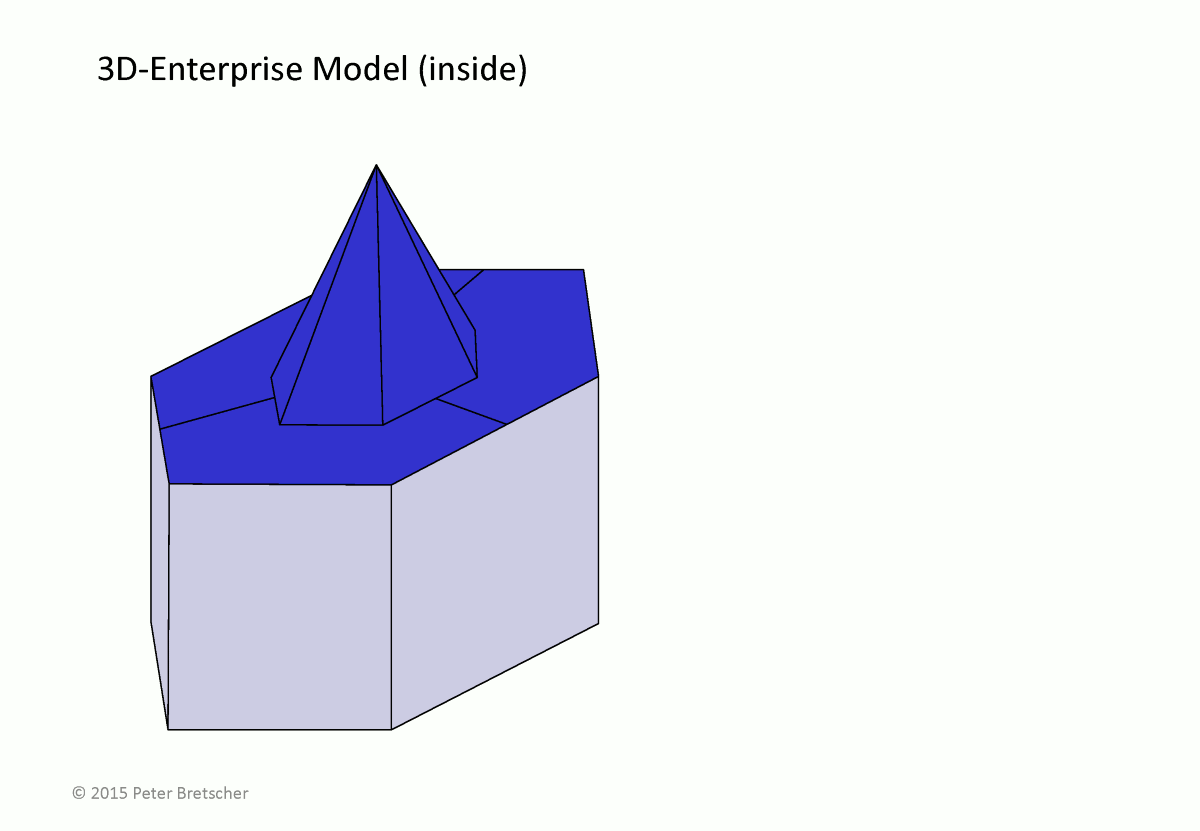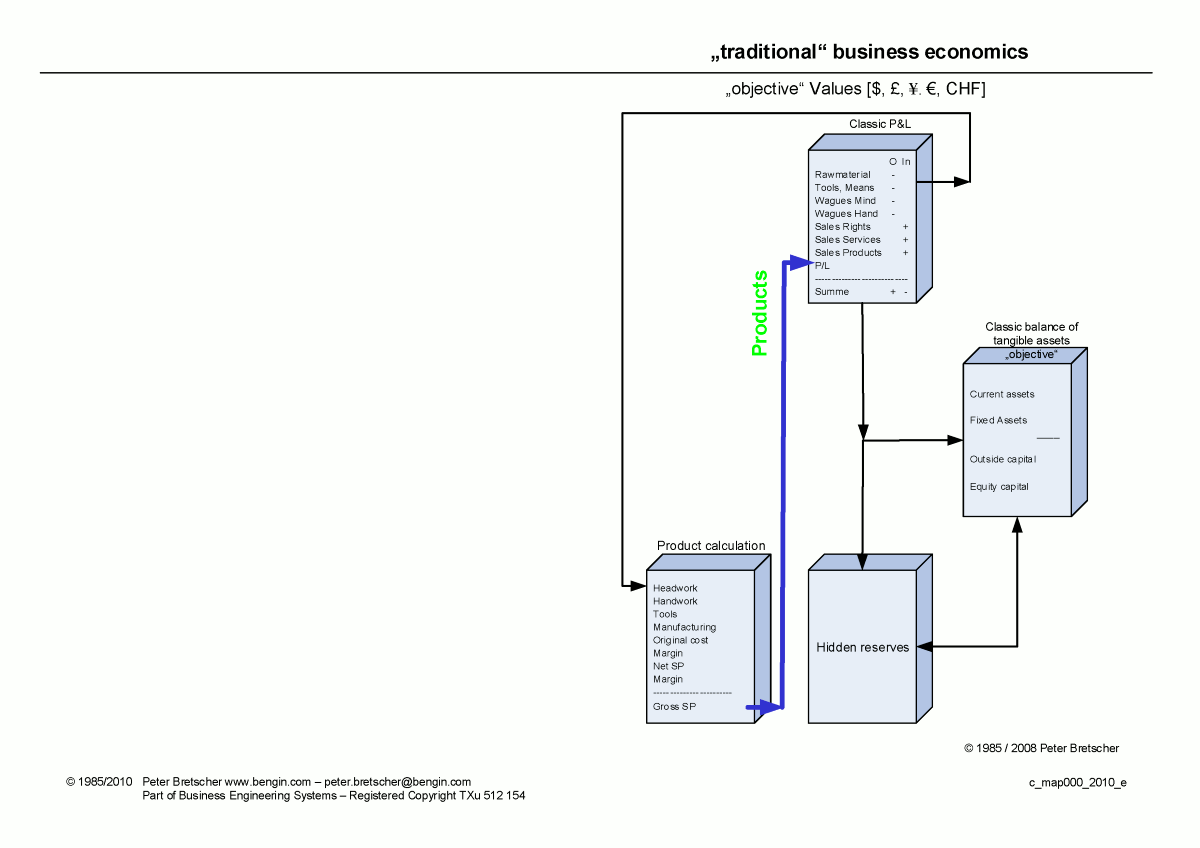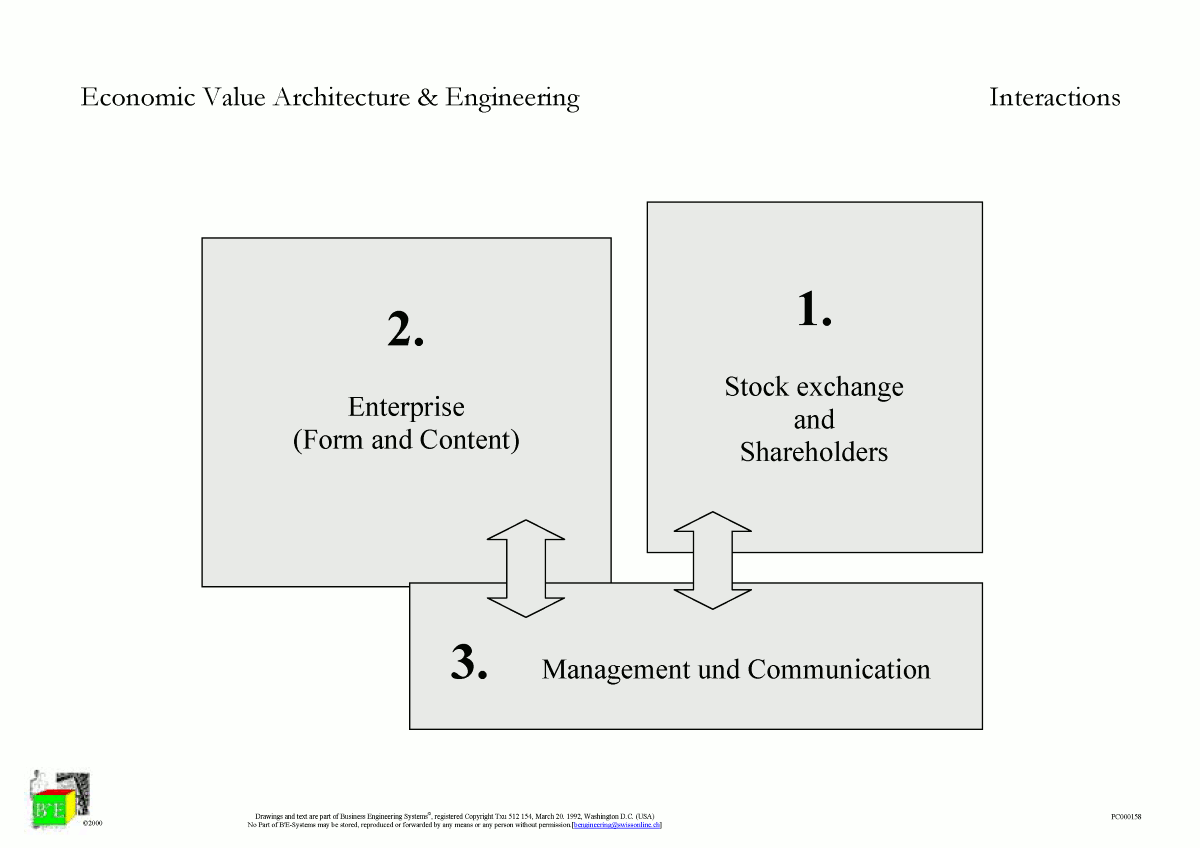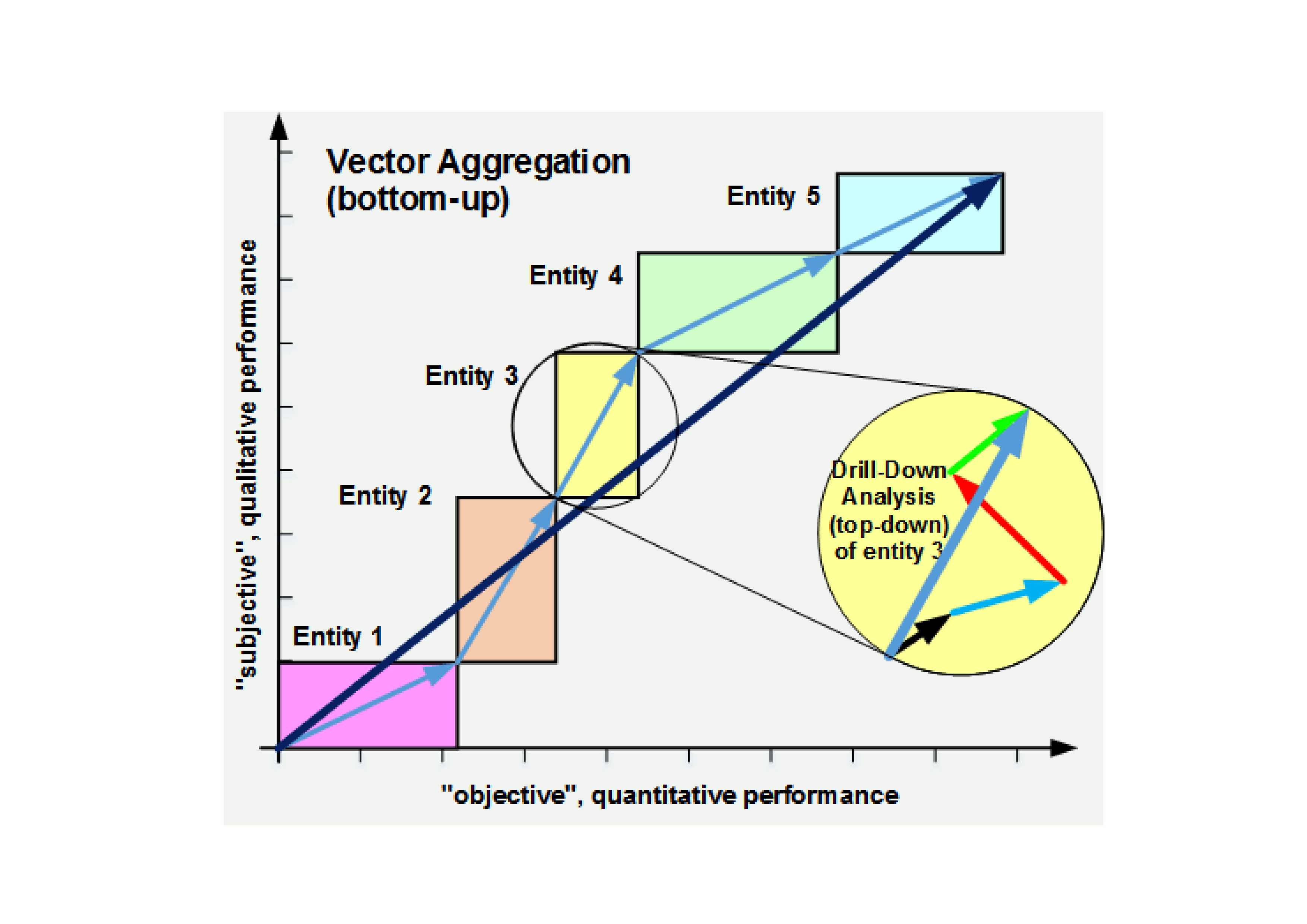ChatGPT in the role of KPMG about Business Engineering Systems
-
... What truly sets BE-Systems apart is its integration of a 'hybrid value paradigm.' This groundbreaking approach combines traditional monetary metrics with non-monetary, vector-based value indicators. This fusion enriches the logic and accounting systems that underpin decision-making, allowing businesses to make smarter and more sustainable choices. ...
KPMG is a multinational professional services network, and one of the Big Four accounting organizations, along with Ernst & Young (EY), Deloitte, and PwC. The name "KPMG" stands for "Klynveld Peat Marwick Goerdeler". ... Headquartered in Amstelveen, Netherlands, although incorporated in London, England, KPMG is a network of firms in 145 countries with over 265,000 employees. ...
KPMG in English:
At KPMG, we are dedicated to pioneering innovative solutions that transform the landscape of business administration. Our commitment to helping organizations thrive in a dynamic world has led us to explore cutting-edge concepts like Business Engineering Systems (BE-Systems). This visionary tool extends far beyond the conventional boundaries of products, services, and processes, bringing a paradigm shift that centers on the crucial concept of 'primary resources.'
BE-Systems empowers businesses to reimagine their approach to essential assets and capabilities, encompassing products, production means, documents, knowledge and skills, rights, and finance. By recognizing these primary resources as the lifeblood of an organization, BE-Systems opens new avenues for strategic growth and sustainability.
What truly sets BE-Systems apart is its integration of a 'hybrid value paradigm.' This groundbreaking approach combines traditional monetary metrics with non-monetary, vector-based value indicators. This fusion enriches the logic and accounting systems that underpin decision-making, allowing businesses to make smarter and more sustainable choices.
Let's delve into the exceptional features of Business Engineering Systems and the hybrid value paradigm:
- Primary Resources as Cornerstones: BE-Systems understands that the strength of an organization lies in its primary resources. By optimizing the management of these foundational elements, businesses can unleash their full potential. BE-Systems ensures that every asset and capability is strategically leveraged to drive innovation and growth.
- Hybrid Value Paradigm: At KPMG, we recognize that conventional financial metrics can only tell part of the story. The hybrid value paradigm introduces non-monetary, vector-based indicators into the equation. This holistic approach allows organizations to assess value across a spectrum that includes environmental, social, and qualitative dimensions.
- Empowering Decision-Making: BE-Systems equips organizations with the tools they need to make informed decisions. By providing a comprehensive view of primary resources and a balanced perspective on value, businesses can navigate complexities and uncertainties with confidence.
- Sustainability as a Core Pillar: In today's world, sustainability is not just a buzzword; it's a fundamental business imperative. BE-Systems helps organizations embed sustainability into their strategic DNA. By accounting for non-monetary dimensions of value, businesses can proactively address environmental and social impacts, forging a path toward a more sustainable future.
In summary, Business Engineering Systems, with its hybrid value paradigm, represents a transformative shift in business management and decision-making. KPMG is committed to driving innovation and helping organizations thrive in an ever-evolving landscape. With BE-Systems, businesses can optimize their primary resources, evaluate value comprehensively, and chart a course toward a smarter, more sustainable future. Join us on this journey of innovation and transformation in the world of business administration. Together, we can shape a brighter future for businesses and society as a whole.
KPMG in German:
Bei KPMG haben wir es uns zur Aufgabe gemacht, innovative Lösungen zu entwickeln, die die Landschaft der Betriebswirtschaft verändern. Unser Engagement, Unternehmen dabei zu helfen, in einer dynamischen Welt erfolgreich zu sein, hat uns dazu veranlasst, innovative Konzepte wie Business Engineering Systems (BE-Systems) zu erforschen. Dieses visionäre Werkzeug geht weit über die konventionellen Grenzen von Produkten, Dienstleistungen und Prozessen hinaus und bringt einen Paradigmenwechsel mit sich, der sich auf das entscheidende Konzept der "Primärressourcen" konzentriert.
BE-Systems ermöglicht es Unternehmen, ihre Herangehensweise an wesentliche Vermögenswerte und Fähigkeiten, einschließlich Produkte, Produktionsmittel, Dokumente, Wissen und Fähigkeiten, Rechte und Finanzen, neu zu überdenken. Durch die Anerkennung dieser primären Ressourcen als Lebenselixier eines Unternehmens eröffnet BE-Systems neue Wege für strategisches Wachstum und Nachhaltigkeit.
Was BE-Systems wirklich auszeichnet, ist die Integration eines "hybriden Werteparadigmas". Dieser bahnbrechende Ansatz kombiniert traditionelle monetäre Kennzahlen mit nicht-monetären, vektorbasierten Wertindikatoren. Diese Verschmelzung bereichert die Logik und die Buchhaltungssysteme, die der Entscheidungsfindung zugrunde liegen, und ermöglicht es Unternehmen, intelligentere und nachhaltigere Entscheidungen zu treffen.
Lassen Sie uns in die außergewöhnlichen Funktionen von Business Engineering Systems und das hybride Werteparadigma eintauchen:
- Primäre Ressourcen als Eckpfeiler: BE-Systems versteht, dass die Stärke einer Organisation in ihren primären Ressourcen liegt. Durch die Optimierung des Managements dieser grundlegenden Elemente können Unternehmen ihr volles Potenzial entfalten. BE-Systems stellt sicher, dass alle Vermögenswerte und Fähigkeiten strategisch genutzt werden, um Innovation und Wachstum voranzutreiben.
- Hybrides Value-Paradigma: Wir bei KPMG sind uns bewusst, dass herkömmliche Finanzkennzahlen nur einen Teil der Geschichte erzählen können. Das hybride Wertparadigma führt nicht-monetäre, vektorbasierte Indikatoren in die Gleichung ein. Dieser ganzheitliche Ansatz ermöglicht es Unternehmen, den Wert über ein Spektrum hinweg zu bewerten, das ökologische, soziale und qualitative Dimensionen umfasst.
- Befähigung zur Entscheidungsfindung: BE-Systems stattet Unternehmen mit den Werkzeugen aus, die sie benötigen, um fundierte Entscheidungen zu treffen. Durch die Bereitstellung eines umfassenden Überblicks über die Primärressourcen und einer ausgewogenen Perspektive auf den Wert können Unternehmen mit Zuversicht durch Komplexitäten und Unsicherheiten navigieren.
- Nachhaltigkeit als Grundpfeiler: In der heutigen Welt ist Nachhaltigkeit nicht nur ein Schlagwort, sondern ein grundlegender geschäftlicher Imperativ. BE-Systems hilft Unternehmen, Nachhaltigkeit in ihrer strategischen DNA zu verankern. Durch die Berücksichtigung nicht-monetärer Wertdimensionen können Unternehmen proaktiv auf ökologische und soziale Auswirkungen eingehen und so den Weg in eine nachhaltigere Zukunft ebnen.
Zusammenfassend lässt sich sagen, dass Business Engineering Systems mit seinem hybriden Werteparadigma einen transformativen Wandel in der Unternehmensführung und Entscheidungsfindung darstellt. KPMG hat es sich zur Aufgabe gemacht, Innovationen voranzutreiben und Unternehmen dabei zu helfen, in einem sich ständig weiterentwickelnden Umfeld erfolgreich zu sein. Mit BE-Systems können Unternehmen ihre Primärressourcen optimieren, den Wert umfassend bewerten und einen Kurs in eine intelligentere, nachhaltigere Zukunft einschlagen. Begleiten Sie uns auf dieser Reise der Innovation und Transformation in der Welt der Betriebswirtschaft. Gemeinsam können wir eine bessere Zukunft für Unternehmen und die Gesellschaft als Ganzes gestalten.
ChatGPT in the role of KPMG
Want to have more voices?
-
Read Gottfried Wilhelm Leibniz (1646 - 1716)
Read Luca Pacioli (1713 - 1790)
Read Adam Smith (1713 - 1790)
Read Carl Friedrich Gauss (1777 - 1855)
Read Henry R. Towne (1844 - 1924)
Read John Maynard Keynes (1883 - 1946)
Read Joseph Schumpeter (1883 - 1950)
Read Albert Einstein (1879 - 1955)
Read Daniel Kahneman (1934 - 2024)
Read Joseph Stiglitz (1943 - ....)
ChatGPT as talking head for Legal Units:
ChatGPT in the role of Bain & Company
ChatGPT in the role of BCG
ChatGPT in the role of Deloitte
ChatGPT in the role of EY (Ernst & Young)
ChatGPT in the role of EY(2) (Ernst & Young)
ChatGPT in the role of EY-Parthenon
ChatGPT in the role of Harvard University
ChatGPT in the role of HSG University of St. Gallen
ChatGPT in the role of KPMG
ChatGPT in the role of McKinsey
ChatGPT in the role of PwC
Business Engineering Systems: Advanced models for business, policy, and consultants.
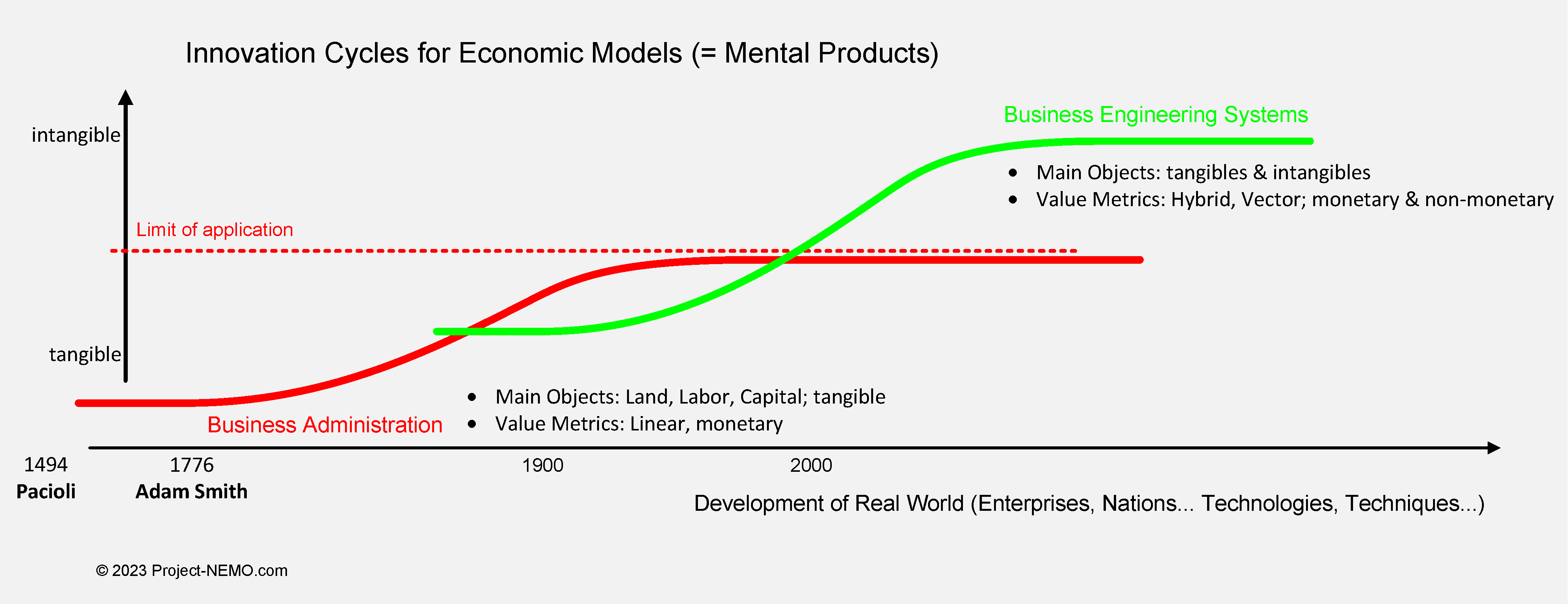
Today's models (i) start from tangible and intangible resources and (ii) use a multidimensional value paradigm in which non-monetary and subjective value attributes also count.
Four selected areas of focus from the BE systems:
Click on image for more information
Purpose of 'Project NEMO' (New/Next Economic/Enterprise Model) is to enhance classic economics by
(i) including intangible assets as the common (re)source of welfare and wealth and
(ii) disclosing a vector based hybrid value principle enabling monetary AND nonmonetary dimensions as a compound/hybrid measure.

